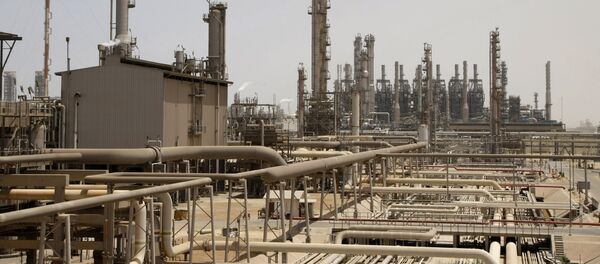MOSCOW (Sputnik) — The global slump in oil prices is beneficial for growing, import-dependent countries, such as those in the Asia-Pacific region, experts told Sputnik.
"Falling oil prices are a bonanza for growing, import-dependent economies, and particularly in places like Japan, China, and South Korea. Asia-Pacific importing nations stand to benefit in a big way," Senior Associate for South and Southeast Asia at the Woodrow Wilson International Center for Scholars Michael Kugelman said.
According to Tim Boersma, the acting director of the Brookings Institution's Energy Security and Climate Initiative, the current situation in the global oil markets is good news for all customers, "and importing countries in the Asia-Pacific region are part of that."
"All net importers of crude will benefit from 'low' prices by seeing their import bills shrink," Senior Fellow and Director of the Troubled Currencies Project at Cato Institute Steve Hanke said.
Boersma believes that the goal of exporting countries is to sell as much as possible, since there is no global agreement on curtailing production.
"Saudi Arabia is presumably concerned about its oil market shares, with some regions of the world — such as the US — moving a bit closer to energy independence from the Middle East, and other regions — such as Asia — trying to find more sources of oil imports," Kugelman said.
"For Saudi Arabia, a major objective is to maintain a foothold in markets where it has long been established. Whether this will actually be possible in Asia-Pacific is another matter," the expert said.
Hanke also believes that Saudi Arabia will seek to keep or increase their share in the Asian markets, with over half of their exports ending up there.
"So, the Kingdom has aggressively cut prices on Asian exports of crude whenever challenged," Hanke added.
Oil prices fell by 34 percent in 2015, largely due to prolonged global oversupply. The continued fall in oil prices has also been attributed to the Organization of the Petroleum Exporting Countries' (OPEC) unwillingness to cut production out of fear of losing market share.





